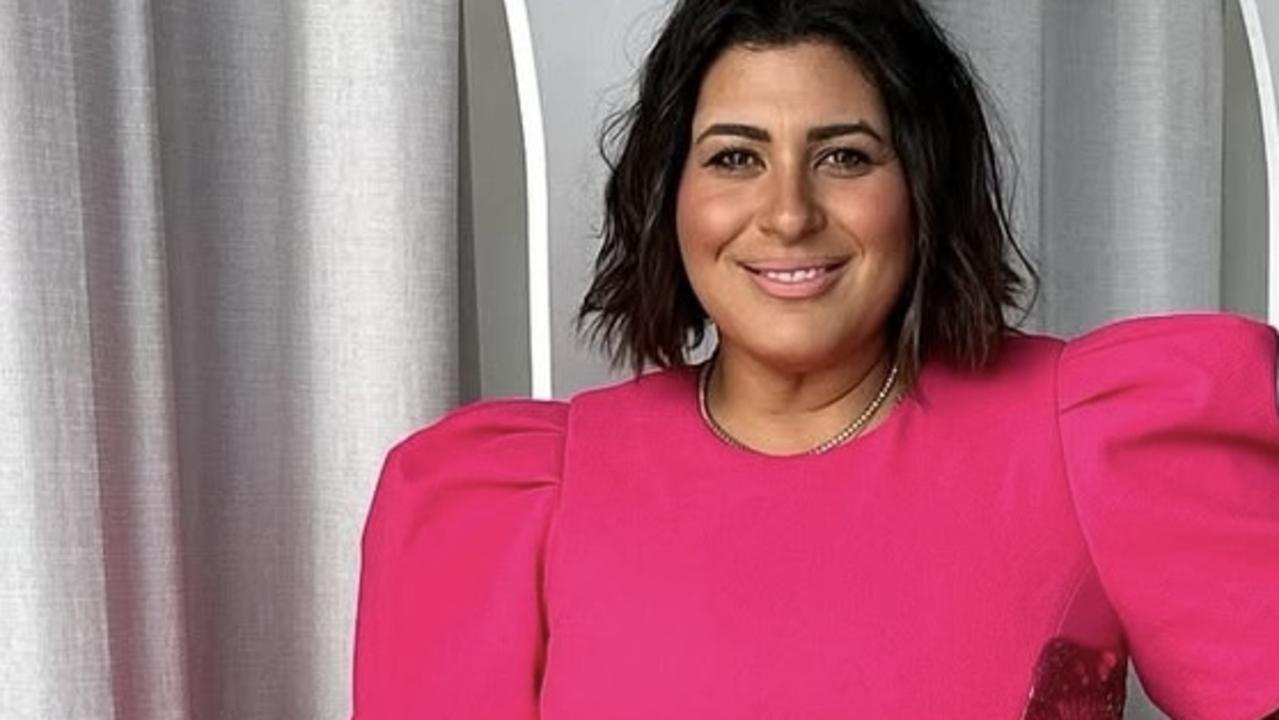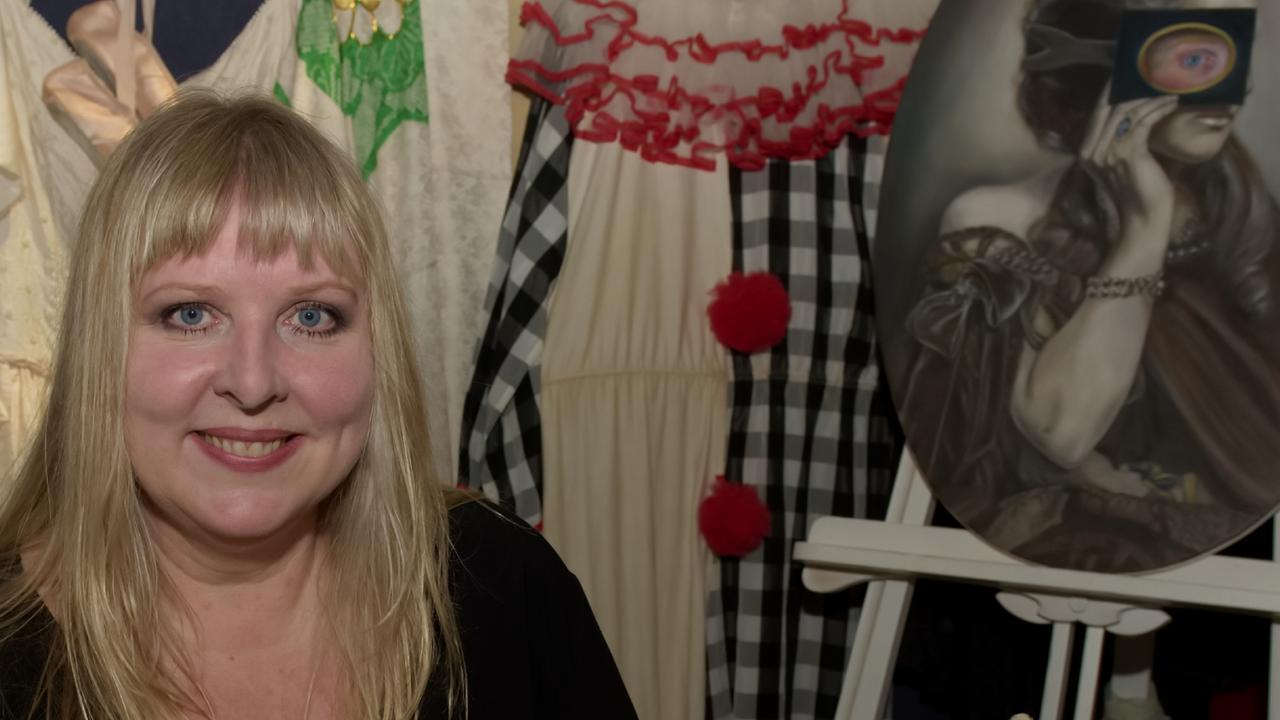Mum-of-three shares stark realities of domestic abuse at the hands of her husband
In the living room of her Adelaide home, Emma locked eyes with her young daughter as she passed out from being strangled. She shares how life will never be the same.
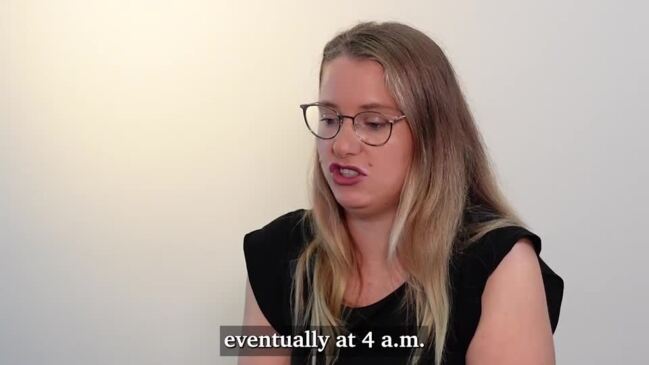
SA Weekend
Don't miss out on the headlines from SA Weekend. Followed categories will be added to My News.
The first time Emma’s husband laid a violent hand on her, it came out of the blue.
It was late on an otherwise regular Friday night when Emma, then 34, found herself lying on the cold concrete of her front driveway, barely dressed, with her husband looming over her.
Seconds earlier his hands had been wrapped around her neck, squeezing until she blacked out, “pure rage” in his eyes.
“I remember coming to and he was still standing over me. (I was) screaming and screaming for help,” the now 37-year-old mum of three recalls.
“I thought ‘This is how I’m gonna die, laying here in the driveway in front of everybody’.”
How had it come to this?
Less than four years earlier the couple had welcomed a baby girl into their blended family, and said their marriage vows soon after in a small beachside ceremony.
In the six years they were together, Emma says her husband had never been physically violent towards her – until the Saturday night that changed everything.
She would later come to understand there had been red flags, but on that night the sudden violence came as a confusing shock.
“I don’t think there are words to describe just how terrifying it was,” she tells SA Weekend.
“One minute we were watching a movie on the couch and the next he’s strangling me … it still doesn’t make sense.”
Emma has spoken about her ordeal ahead of the launch, on Monday, of an unprecedented Royal Commission into Domestic, Family and Sexual Violence in South Australia.
The top-level, multimillion-dollar inquiry was promised in the wake of a spate of four deaths in just seven days late in 2023.
Every day, thousands more victims are scarred by acts of physical, psychological and sexual abuse behind closed doors, and in broad daylight.
Emma knows she is “absolutely” lucky to be alive and wants to give evidence to the commission about the ways she feels the health, judicial and other systems let her down in the wake of her life-altering experience.
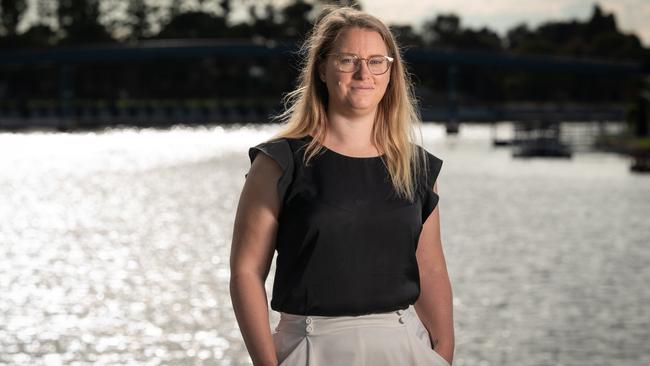
THE ABRUPT ATTACK
On a warm Friday evening in February 2021, Emma and her now ex-husband Alan Noel Lipson had spent the evening at home drinking and socialising with friends.
Their daughter, three, and Emma’s two older girls from her previous marriage, were asleep.
After their guests left around 11pm, the couple finished watching a film together and then Emma decided to go to bed.
Lipson “didn’t like that idea”, she recalls, and began shouting and following her as she walked towards the bedroom. When she turned to face him, Lipson hit her “so forcefully that my phone went flying and my glasses flew off my face”.
He picked up the phone and threw it out of the nearby front door. When Emma went to retrieve the smashed device she remembers “that’s when he grabbed me by the throat and slammed me onto the ground, between the car and the carport, and strangled me”.
“I couldn’t get free no matter what I was doing. I was hitting, I was kicking, I was using all my force with my feet to try and push him off me and nothing was working. Then everything went black,” she says.
After she regained consciousness, Emma scrambled back inside and, amid the chaos, tried to put on some pants. Then she “heard him coming” again.
“He just had this look, I’ve never seen that look before in anybody. It was just pure rage and hate. I didn’t recognise him at all,” she says.
“He pushed me down onto the couch and strangled me again until I blacked out.”
By this time the children were awake and crying. Emma says her eldest daughter was standing close enough to witness the attack.
“Seeing her standing there (I was) thinking ‘My daughter’s going to watch me die’. Then my thought was ‘what happens to them?’”

When she came to after the second choking, Emma stood unsteadily and lurched for the kitchen, where she could see Lipson’s phone.
As she shakily tried to dial triple-0, the phone battery died. Then Lipson was coming for her again, Emma says.
“My daughter was standing in the hallway looking in. She actually yelled out to him ‘Stop, you’ve woken (her younger sister) up and you’re scaring her’.”
At that point Lipson ran to find his daughter.
“I remember him saying ‘You’re gonna take her from me. You’re going to leave me’. I could barely talk, I don’t know how I even managed to get the words out but I said ‘I just need to go next door’,” Emma says.
Having heard the screaming, her neighbours had called the police and were, by this point, standing at the front door trying to coax her girls to safety. Eventually they all escaped next door and patrol cars descended on the scene.
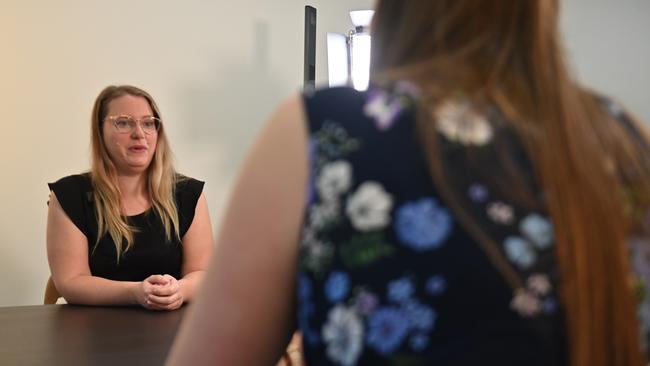
THE AFTERMATH
The immediate emergency was over, but the nightmare had only just begun.
Emma was taken to hospital where she had to make a statement to police in between being taken off for ultrasounds, X-rays, CT scans and more.
She was dressed in a singlet and pants, “no shoes, no socks, no underwear”, and felt extremely vulnerable.
“I was covered in bruises. You could see finger marks around my neck. My jaw was so swollen and I had a hand print where he struck me on my face,” she explains.
“I was in shock and traumatised. I felt like everybody was just staring at me.”
A police officer remained with Emma while she gave her statement behind a thin curtain, slightly separated from other patients. She says she was not taken to a private room until hours later. The next morning a doctor, who she had not seen the night before, came to check on her.
“He hadn’t read my notes or anything and he said, ‘Have you got laryngitis? Is that what we’re looking at?’ I couldn’t say anything. I was frozen,” she recalls.
“I’d just been attacked by my ex-husband and there was no decency to make sure there was a female in the room with me.”
The doctor checked her over and deemed her ready to be discharged but Emma, who was still without her phone, says no one asked about what other support she might need.
“There was no (question about) how are you getting home, are you safe, is there someone coming to pick you up, do you need us to call you a taxi,” she says.
“It was just ‘here you go, do you need a doctor’s certificate for work?’,” and she was handed a pamphlet about the 1800 RESPECT national counselling hotline.
“I can see how, without the supports in place, women who don’t have somewhere to go will go back (to an abusive relationship) time and time again.”

EMMA’S FIGHT FOR JUSTICE … AND A VOICE
Emma wants to share her story with the royal commission to highlight gaps in the systems she feels let her down.
After her admission to hospital, she wrote to the state health minister asking for extra funding to ensure there were counsellors available – or at least on call – for abuse victims after-hours and on weekends.
She says health and hospital staff also must be aware that abusers often accompany their victims for medical treatment, to prevent them from speaking up. “Their (victim) stories don’t make sense: ‘I tripped over running or I hurt my hand cooking, or I tripped over the cord vacuuming’,” she says.
“If a doctor or nurse suspects something (they should) be able to ask them questions away from the perpetrator.”
Health Minister Chris Picton, who became minister more than a year after the attack on Emma, says he was “extremely sorry” to hear of her experience and “that she felt unsupported” at the hospital.
He says that in 2022, all local health networks across SA introduced the “Ask, Assess and Respond” procedure which encourages doctors and nurses to ask patients about domestic violence “in a sensitive and non-judgmental way”.
“Unfortunately, social work services are not always available 24/7 across all local health networks,” Picton says. “However, enhancing the knowledge and skills of all clinicians will enable an improved response more broadly.”
Emma praised the response of SA Police (who used their powers to evict Lipson from their home) and her GP (who quickly referred her to a psychologist), but knows not all women have the same experience.
“I have spoken to so many women who have ended up in shelters; (sometimes) the house has been in their name and they’ve been the one to leave because it’s too hard to get the perpetrators to leave,” she says. “There are some amazing services out there but women don’t have access to them. If they don’t have their own phone … car … bank accounts, if they’re being monitored and everything is controlled, if they can’t use the internet safely, how do they reach out to services?”
Emma also wants penalties for violent offences re-examined.
Lipson pleaded guilty to aggravated assault (for hitting her across the face), property damage (for smashing her phone) and two counts of unlawful choking. He was sentenced to 16 months in jail, with a non-parole period of eight months. After serving 14 months, he was released in December.
Emma says she was gutted by his sentence and left feeling “quite worthless”.
“Sixteen months as a head sentence is nothing. And the maximum penalty for property damage (10 years) was more than for the strangulation charge (seven years). How is the property damage maximum penalty more than trying to take someone’s life?” she says.

On the day Lipson was sentenced, Emma summoned the courage to read her victim impact statement in front of him in court.
“I couldn’t look at him. I could barely get through it,” she recalls. “Before I went up there I was in the bathroom vomiting. But I did it, with lots of tears and shaking.
“It’s retraumatising having to go through the court system. I can understand why so many women don’t pursue it. You’re trying to heal and move on but you can’t do that while you’re still having to revisit it constantly.”
Despite the public nature of the attack she endured – in her front yard, so loud that four sets of neighbours apparently called the police – Emma says she tried to keep it private.
“I didn’t tell many people what had happened … it was really embarrassing, which it shouldn’t be. But I was really embarrassed … and thought how did it get to this?” she says.
“It’s only been maybe the last few months that I’ve openly spoken out about what’s happened and had that courage.”
And she is still trying to make sense of how it got that bad.
Their relationship moved swiftly in the beginning. The couple moved in together within six months and Emma fell pregnant about a year later. It followed the breakdown of Emma’s first marriage and she had “lost a lot of self-esteem”.
“He did build up my confidence. But I look back now and think ‘wow, that was really quick’.
“Looking back I can see all the red flags that you miss … there were little things. He would always say ‘why don’t you love me enough?’ and put it back on me.
“There was lots of yelling. Once he got angry and threw a hairbrush at me. It didn’t hit me. I didn’t think anything of it at the time.”
Emma and her girls are recovering, slowly. Some days they feel brave, on other days fear and flashbacks lurk around every corner.
Emma rarely went into the loungeroom where she was attacked, just being there brought it all rushing back.
“Our lives are very different now,” Emma says. “It’s not just you remove yourself from a violent situation and everything goes back to normal. It changes everything. Yes we’re still here but there’s lifelong trauma. No woman should have to learn to live with that.”
Read in SA Weekend on Saturday, June 29, how Emma is hardly alone and how hundreds of calls to domestic violence helplines are going unanswered every day.
Domestic violence: What victims can do
If you or someone you care about is experiencing abuse or domestic violence, help is available.
■ What if I need immediate help in a crisis?
Call triple-0 in an emergency.
SA Police can put in place an interim intervention order, which can prohibit an abuser from contacting you or coming near you.
At any time you can call the 24-hour SA Domestic Violence Crisis Line (1800 800 098) where specialist workers can help you relocate to a secure shelter, or the National Sexual Assault, Domestic and Family Violence Counselling Service on 1800 RESPECT (1800 737 732).
If you have been the victim of a sexual assault Yarrow Place Rape and Sexual Assault Service (1800 817 421) offers a 24-hour response service, medical care, collection of forensic evidence and counselling.
The free Cedar Health Service also provides specialist trauma-informed care (8444 0700).
■ What can I do if I’m not in an emergency but my partner’s behaviour worries me?
You can apply to the Domestic Violence Disclosure Scheme to have SA Police conduct a background check on a partner or ex-partner. You can apply on behalf of someone else. Officers can only reveal offences relevant to domestic violence.
If you’re concerned about a male partner’s behaviour you could also refer them to the Don’t Become That Man counselling service (1300 243 413) or the Men’s Referral Service (1300 766 491).
■ Who can help me plan to safely leave?
The 1800 RESPECT hotline can offer wide-ranging advice. It also operates a web chat service.
Important things to ask include checking if your abuser has put you under surveillance – such as a tracking or recording app on your phone – and which documents to have ready when you decide to leave.
Visiting your GP and ensuring they document any medical impacts of abuse (physical or mental) will help.
If you can do so safely, take photos of any injuries or property damage, take screenshots of harassing or abusive text messages or social media posts, and try to send copies to friends or family as a back up.
New laws require employers to approve up to 15 days of paid domestic violence leave, which can be used to attend medical, legal or counselling appointments, and move house.





